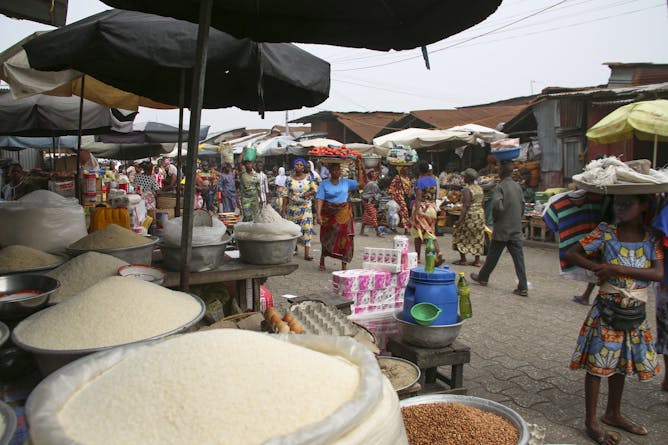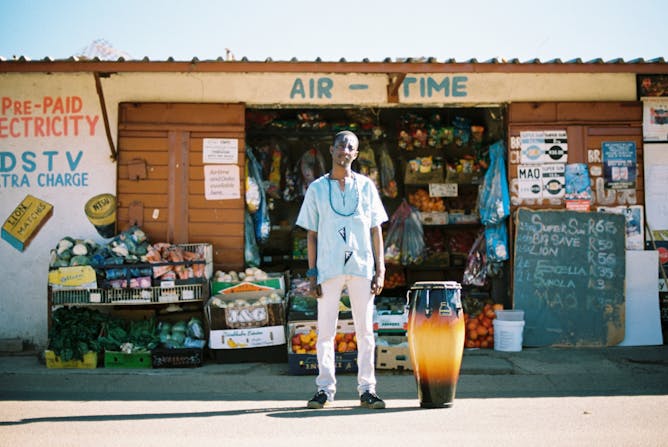|
Informal trade is, in effect, a vital part of the trading system across Africa. It contributes to food security and provides a source of income for millions of people. But governments don’t monitor it and don’t keep it in mind when they’re designing rules for trade. Joachim Jarreau, Cristina Mitaritonna and Sami Bensassi explain how they tracked informal traders in Benin, and how fixing the knowledge gap can help governments design
policies that reduce the costs for these less visible operators.
Every now and then the international music press weighs in on the perennial question: Is jazz dead? And then they hold up all sorts of arguments to either bury or revive the genre. The same has happened recently in South Africa with news that one of the country’s major jazz clubs is in dire financial trouble. But, Gwen Ansell reassures jazz fans, there’s no need to mourn.
|

Flickr/IFPRI - IMAGES
Joachim Jarreau, Université Paris Dauphine – PSL; Cristina Mitaritonna, CEPII; Sami Bensassi, University of Birmingham
Informal trade between African countries is greatly underestimated. A study of patterns across Benin's borders helps fill the knowledge gap.
|

South African rising jazz star, Thabang Tabane.
Lidudumalingani Mqombothi
Gwen Ansell, University of Pretoria
For a musician anywhere, surviving and prospering within the genre called jazz has never been easy, and it still isn't.
|
Health + Medicine
|
-
Karen Austrian, Population Council
Interventions for vulnerable girls in Kenya aim to empower and keep them safe.
|
|
From our international editions
|
-
Steven Conway, Swinburne University of Technology
The epic online game Fortnite was released a year ago and has attracted millions of fans (and detractors). So how has this game made such an enormous impact?
-
Gordon Adams, American University School of International Service
The US was once the dominant force in the Middle East. That old order has disappeared. Now the new powers are Iran, Turkey, Saudi Arabia and Russia – and the US needs a new policy for the region.
|
|